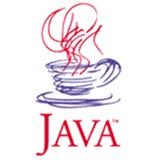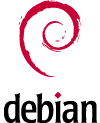Have you ever felt the urge to kill off your time while you are working? A sense to release your tension from boring repetitive work at the office (or at home)?
Of all those burden and urge, you might have downloaded games from the internet and scored a few good round out of it, only to find out finally that you cant write your name on the high score list because you need to register first.
How many times you came across games you downloaded from the internet which impose delayed “unregistered” splash screen, denied you from high score list or even stopped working after a few days of installing?
The game locked you out from your own windows system, and some even installs malicious adware or malware that contaminate your windows!
Well not anymore if you choose the way of the Free (as in freedom and beer) path.

Enter New Breed Software, a software company that embrace Free and Open Source ideology. The company was established in 1993, and it have been releasing numerous number of open source desktop games for various operating system including Windows, Linux and Atari.

Their selection of games is quite good and moreover is Free! The games are not only nice and small, but they also come with complete source code and covered under the GNU General Public License.

Another place to seek FOSS games is at the LGames project hosted at Sourceforge.net. Most of the game listed here are rather clone of popular arcade games, excepts they comes with source codes and installer.


The website also features few javascripts and online games such as OCC, LBill, LCarrot, LMemory, etc for those who rather want to play the games online.
Most of the games featured on the website mentioned here are created by the portable libSDL (Simple Direct Media Library) which ease of the process of developing the games across numerous platform. The library are licensed under GNU Lesser General Public License and you can download the libSDL from it’s project website.

The libSDL website feature a directory which list games and applications developed using libSDL. You can find other games for your favorite operating system (but not neccessarily FOSS) in it’s Games Directory page.
Most of this games listed here works in Microsoft Windows environment and under GNU/Linux operating systems.
Finally, just remember although the games mentioned here does not require any payments or registration but the developers of the games mentioned here still spend a lot of efforts and time to perfect them.
Please show your appreciation when you can and donate a few bucks to them. I’m sure they will return your gesture :)











